Journal Articles
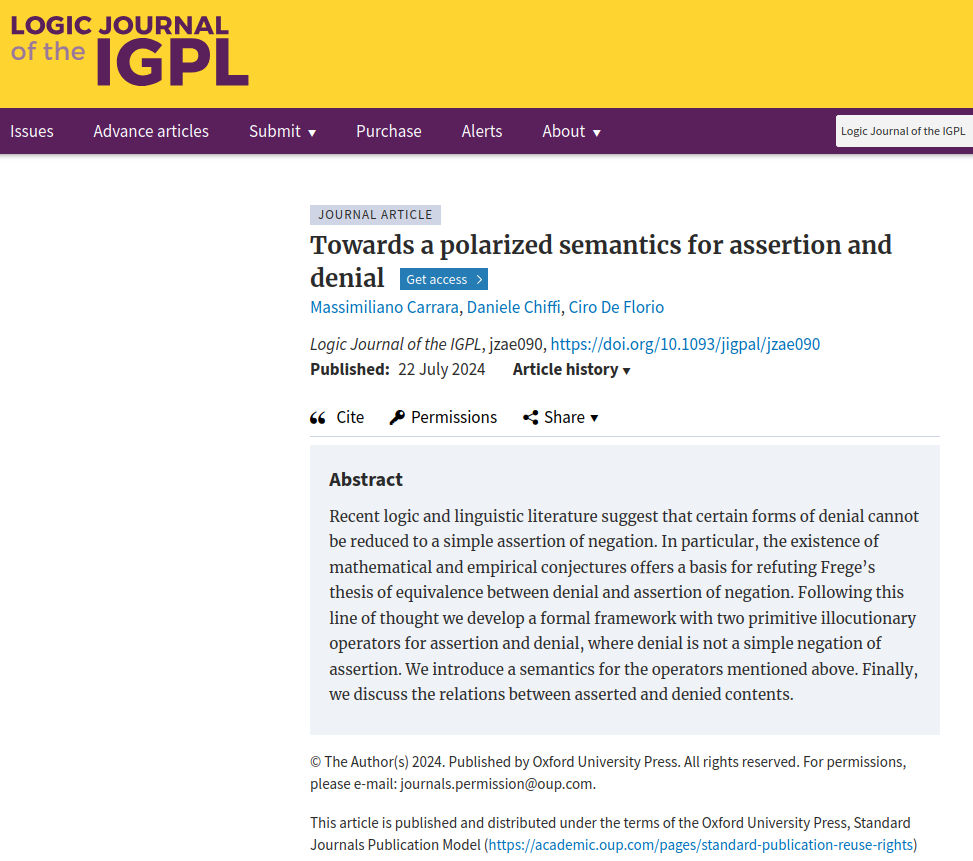
M. Carrara, D. Chiffi and C. De Florio. Towards a polarized semantics for assertion and denial. Logic Journal of the IGPL. 2024. https://doi.org/10.1093/jigpal/jzae090
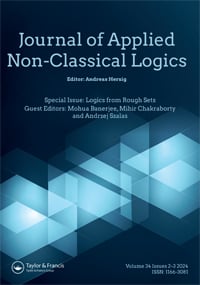
F.A. Genco. Grounding operators: transitivity and trees, logicality and balance. Journal of Applied Non-Classical Logics. 2024. https://doi.org/10.1080/11663081.2024.2366753
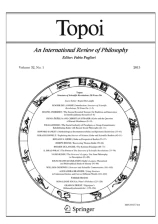
Facchin, M., Zanotti, G. Affective Artificial Agents as sui generis Affective Artifacts. Topoi (2024). https://doi.org/10.1007/s11245-023-09998-z.
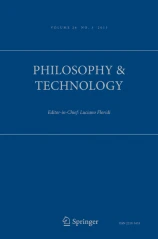
Zanotti, G., Chiffi, D. & Schiaffonati, V. AI-Related Risk: An Epistemological Approach. Philos. Technol. 37, 66 (2024). https://doi.org/10.1007/s13347-024-00755-7.
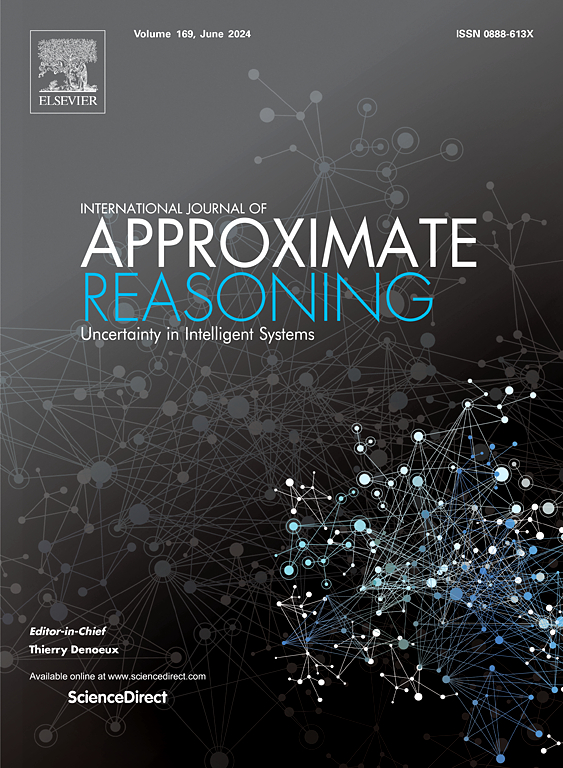
Ekaterina Kubyshkina and Giuseppe Primiero. A possible worlds semantics for trustworthy non-deterministic computations. International Journal of Approximate Reasoning. 2024. https://doi.org/10.1016/j.ijar.2024.109212.
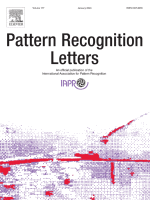
A. Apicella, F. Isgrò and R. Prevete. Hidden classification layers: Enhancing linear separability between classes in neural networks layers. Pattern Recognition Letters, 177, 69-74. 2024. https://doi.org/10.1016/j.patrec.2023.11.016
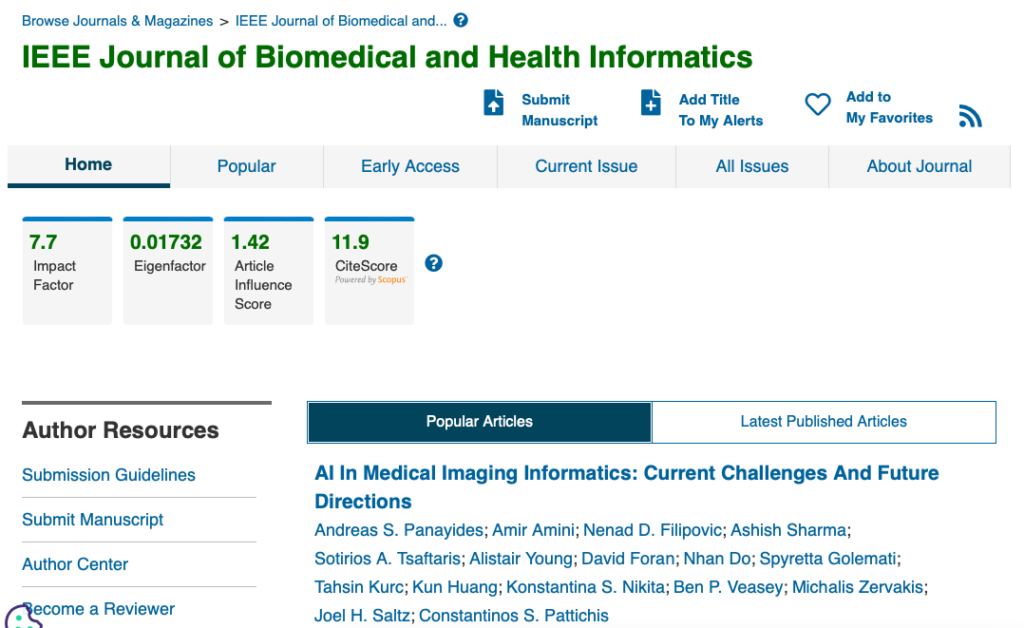
G. Annuzzi, A. Apicella, P. Arpaia, L. Bozzetto, S. Criscuolo, E. De Benedetto, M. Pesola and R. Prevete. Exploring Nutritional Influence on Blood Glucose Forecasting for Type 1 Diabetes Using Explainable AI. IEEE Journal of Biomedical and Health Informatics. 2023. DOI: 10.1109/JBHI.2023.3348334
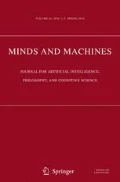
Buda, A.G., Primiero, G. A Pragmatic Theory of Computational Artefacts. Minds & Machines(2023). https://doi.org/10.1007/s11023-023-09650-0
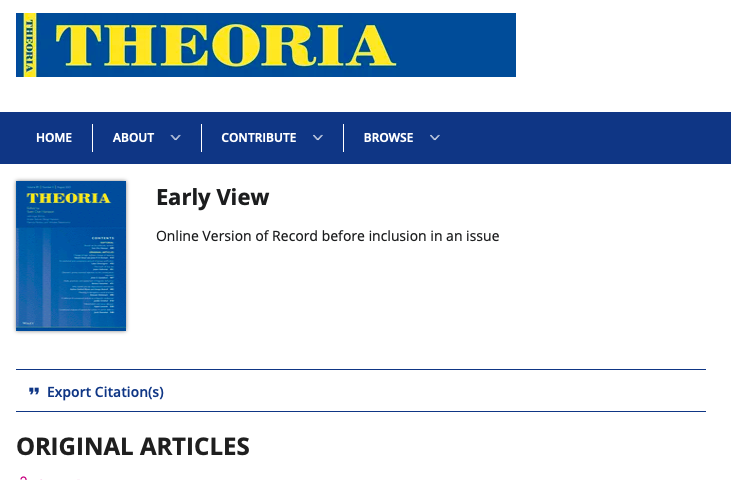
Bellucci, F., Chiffi, D. & Zanetti, L. (2023) Frege: A fusion of horizontals. Theoria, 1–20. https://doi.org/10.1111/theo.12488

Emanuele Bottazzi. Filosofia del peggio. Filosofia, Revista da Faculdade de Letras da Universidade do Porto, 39 (2022) 79-95 79. https://doi.org/10.21747/21836892/fil39a3
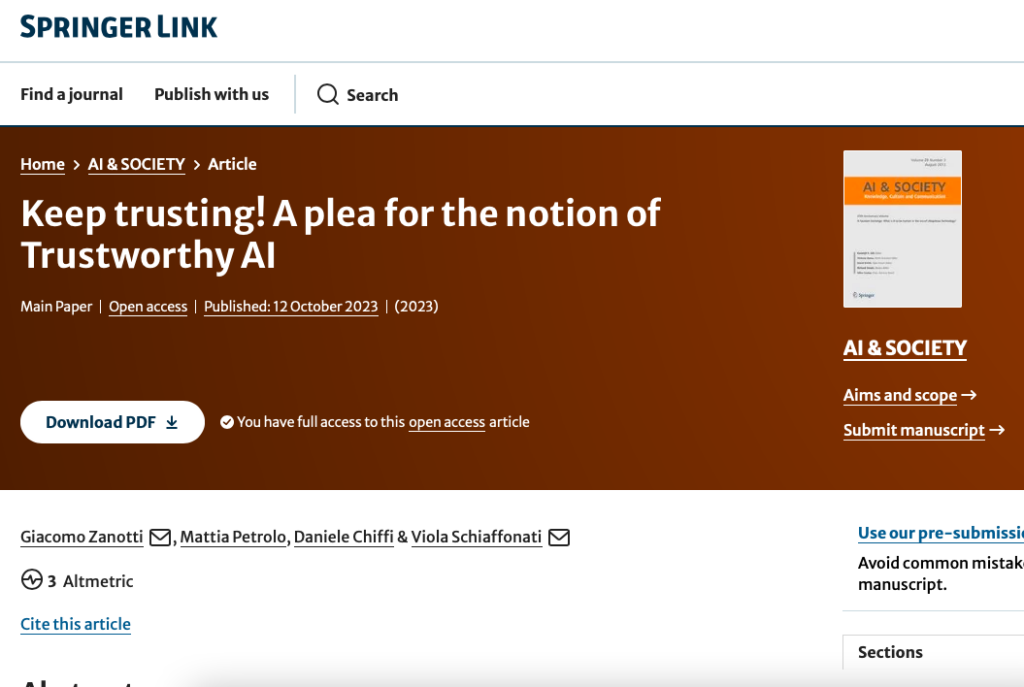
G. Zanotti, M. Petrolo, D. Chiffi and V. Schiaffonati. Keep trusting! A plea for the notion of Trustworthy AI. AI & Society (2023). https://doi.org/10.1007/s00146-023-01789-9
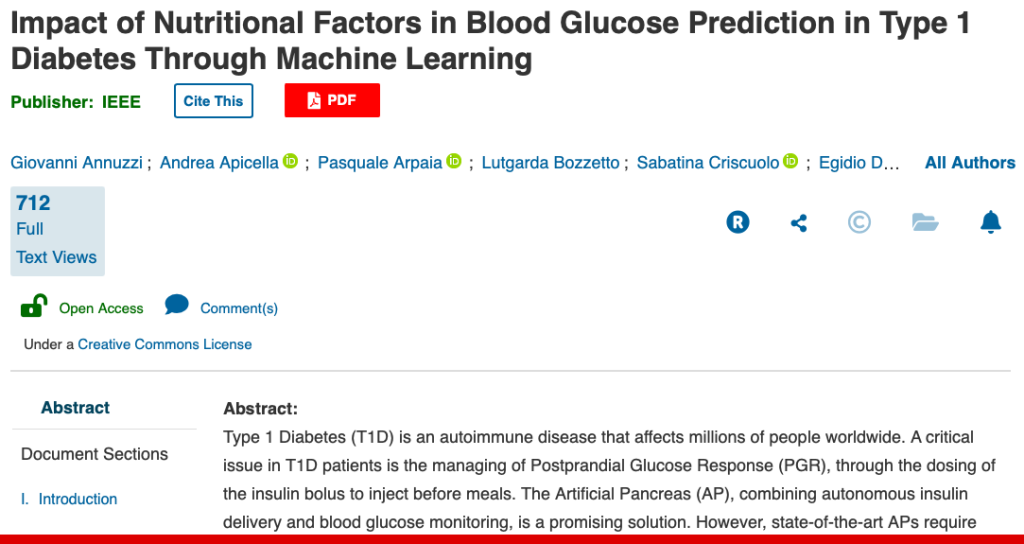
G. Annuzzi, A. Apicella, P. Arpaia, L. Bozzetto, S. Criscuolo, E. De Benedetto, M. Pesola, R. Prevete and E. Vallefuoco.
Impact of Nutritional Factors in Blood Glucose Prediction in Type 1 Diabetes Through Machine Learning. IEEE Access, v.11, pp. 17104–17115. 2003. DOI: 10.1109/ACCESS.20.
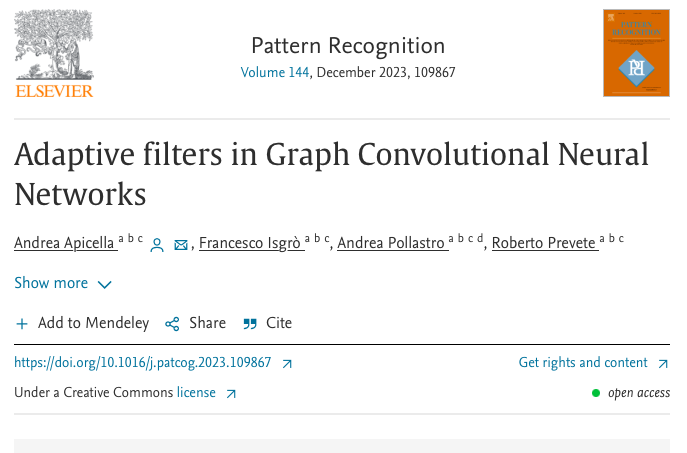
A. Apicella, F. Isgrò, A. Pollastro and R. Prevete.
Adaptive Filters in Graph Convolutional Neural Networks. Pattern Recognition. 2023.

E. Datteri, V. Schiaffonati. Computer simulations and surrogative reasoning for the design of new robots. Synthese, vol. 202, article n. 5. 2023.

A. Apicella, P. Arpaia, E. De Benedetto, N. Donato, L. Duraccio, S. Giugliano & R. Prevete (2023). Employment of Domain Adaptation techniques in SSVEP-based Brain-Computer Interfaces. IEEE Access, vol. 11, pp. 36147-36157. DOI: 10.1109/ACCESS.2023.3266306.
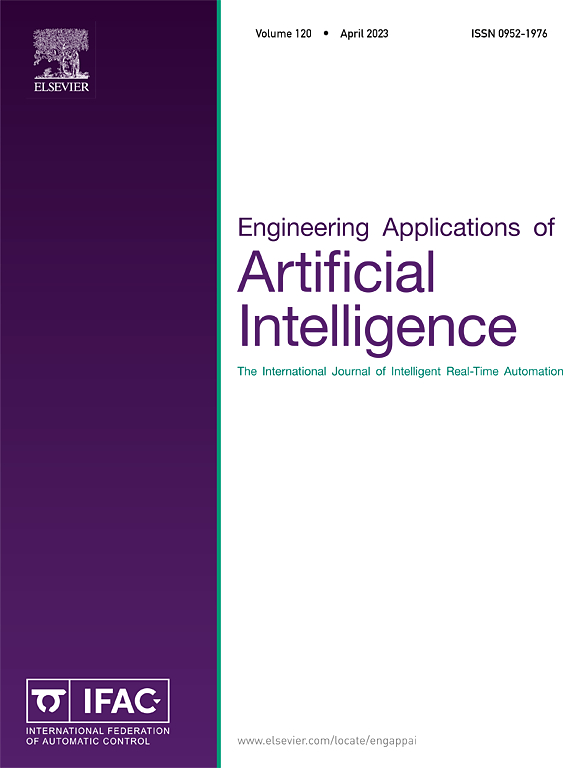
Andrea Apicella, Francesco Isgrò, Andrea Pollastro & Roberto Prevete. On the effects of data normalization for domain adaptation on EEG data. Engineering Applications of Artificial Intelligence, volume 123, Part A, 106205. 2023.
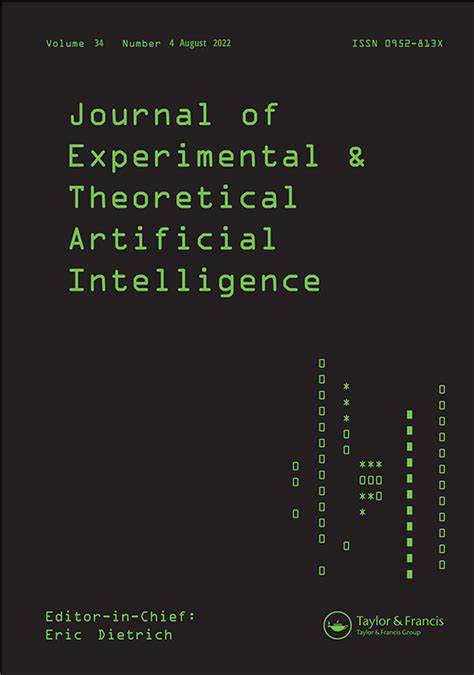
G. Primiero, D. Ceolin & F. Doneda. A computational model for assessing experts’ trustworthiness, Journal of Experimental & Theoretical Artificial Intelligence, 2023. DOI: 10.1080/0952813X.2023.2183272

D. Chiffi, S. Moroni & L. Zanetti. Types of Technological Innovation in the Face of Uncertainty. Philos. Technol. 35, 94 (2022). https://doi.org/10.1007/s13347-022-00587-3
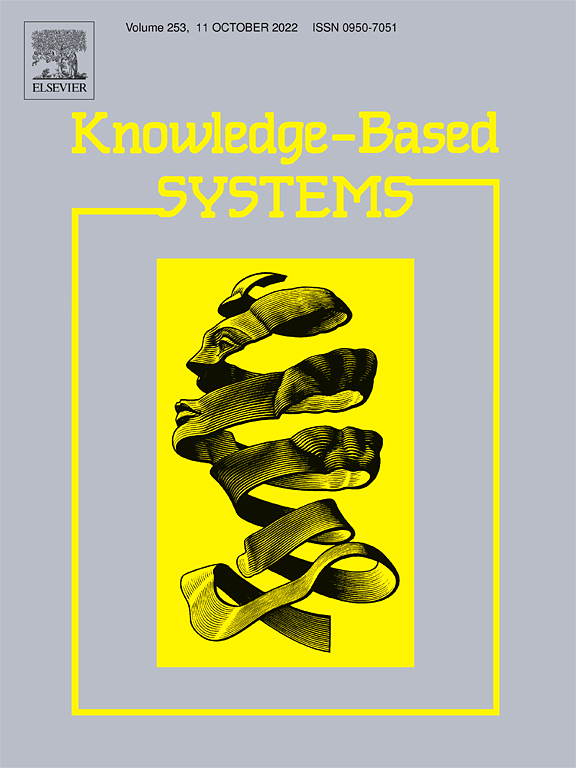
Andrea Apicella, Salvatore Giugliano, Francesco Isgrò & Roberto Prevete. Exploiting auto-encoders and segmentation methods for middle-level explanations of image classification systems, Knowledge-Based Systems,
2022.
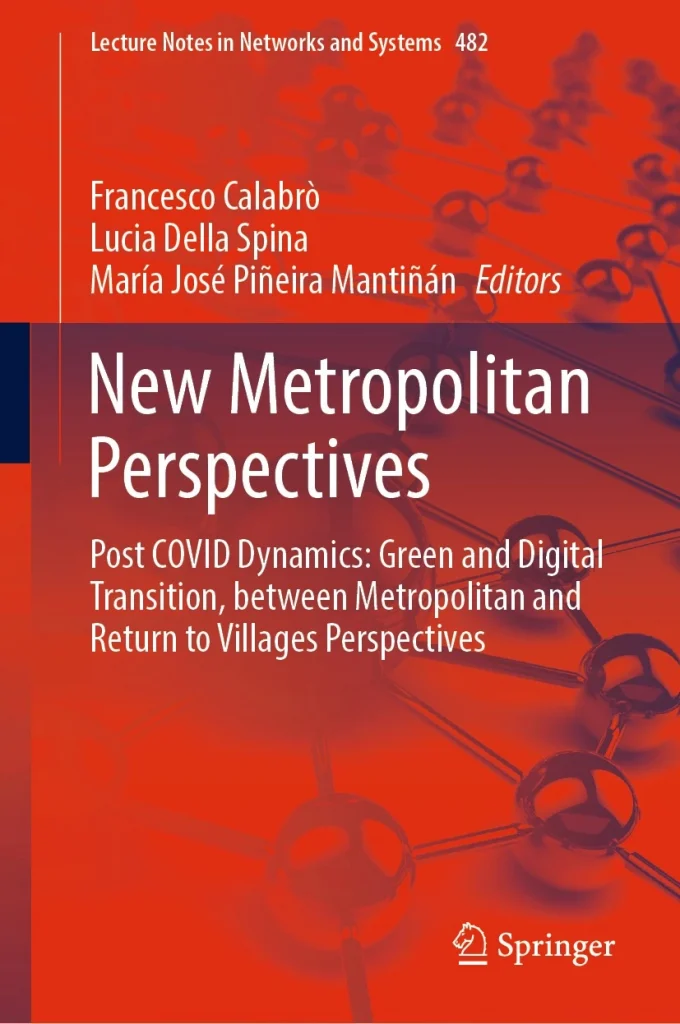
Daniele Chiffi & Francesco Curci, Types of Uncertainty: Cities from a Post-pandemic Perspective, New Metropolitan Perspectives. NMP 2022. Lecture Notes in Networks and Systems, vol. 482. Springer.
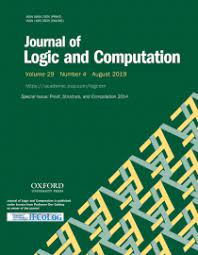
Nicola Angius & Giuseppe Primiero, Copying safety and liveness properties of computational artefacts, Journal of Logic and Computation, 2022.
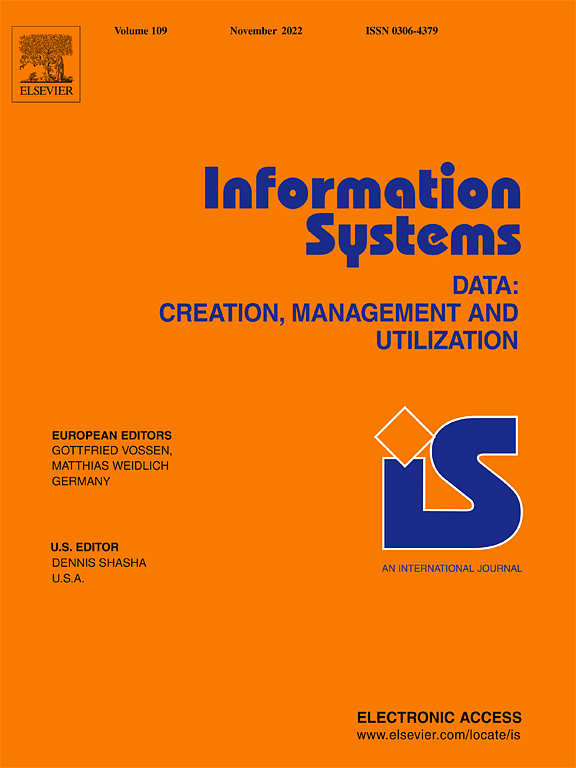
Davide Ceolin, Giuseppe Primiero, Michael Soprano & Jan Wielemaker, Transparent assessment of information quality of online reviews using formal argumentation theory, Information Systems, Journal pre-print.

S. Arfini, D. Spinelli & D. Chiffi, Ethics of Self-driving Cars: A Naturalistic Approach. Minds & Machines (2022).
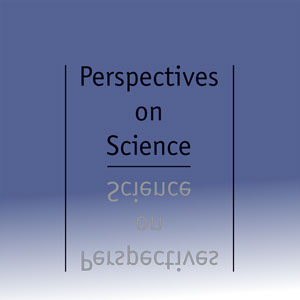
Stefano Moroni, Daniele Chiffi, Uncertainty and Planning: Cities, Technologies and Public Decision-Making. Perspectives on Science 2022; 30 (2): 237–259.

Lorenzo Prandi, Giuseppe Primiero. A logic for biassed information diffusion by paranoid agents in social networks.
Journal of Logic and Computation, 2022.
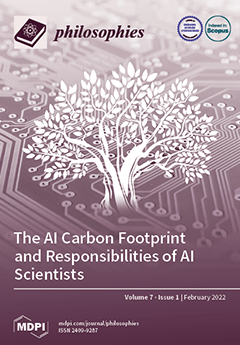
G. Tamburrini, The AI Carbon Footprint and Responsibilities of AI Scientists. Philosophies. 2022; 7(1):4.
Conference Proceedings Articles
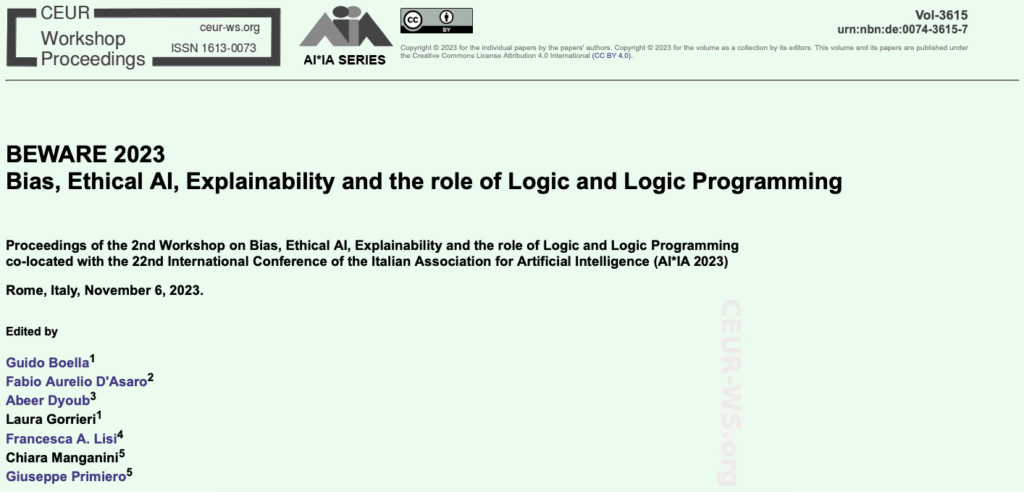
Mattia Petrolo, Ekaterina Kubyshkina and Giuseppe Primiero. A logical approach to algorithmic opacity. Proceedings of the 2nd Workshop on Bias, Ethical AI, Explainability and the role of Logic and Logic Programming co-located with the 22nd International Conference of the Italian Association for Artificial Intelligence (AI*IA 2023), pp. 89–95, 2024.
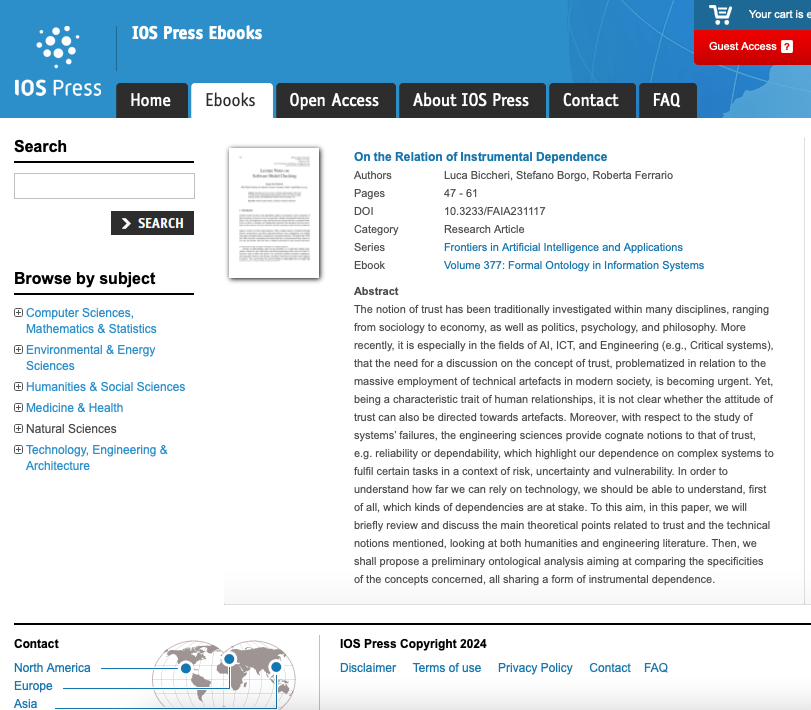
L. Biccheri, S. Borgo, R. Ferrario, “On the Relation of Instrumental Dependence“, in Aussenac-Gilles, N., Hahmann, T., Galton, A. , Hedblom, M. (Eds.) Formal Ontology in Information Systems, Proceedings of the International Conference FOIS 2023, Frontiers in Artificial Intelligence and Applications, vol. 377, IOS Press 2023, pp. 47–61.
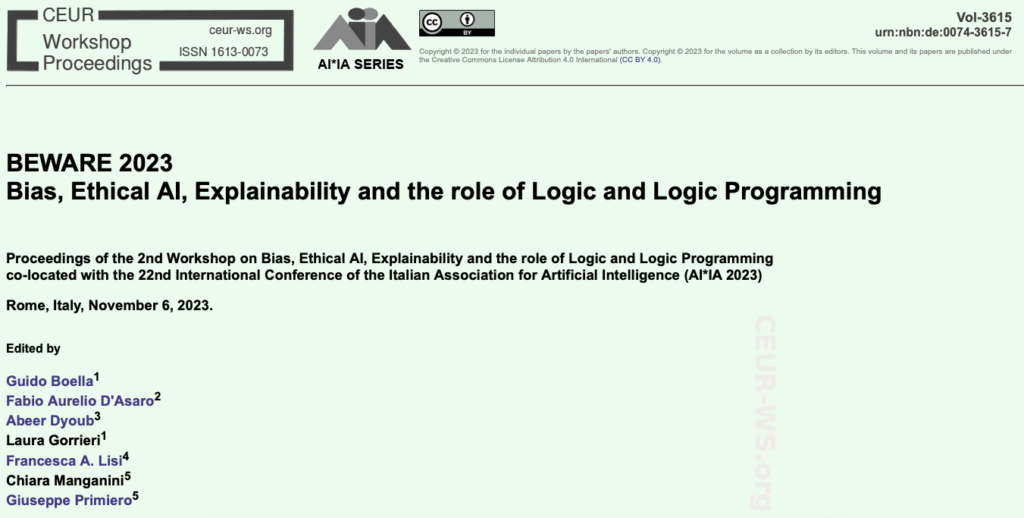
Greta Coraglia, Fabio Aurelio D’Asaro, Francesco Antonio Genco, Davide Giannuzzi, Davide Posillipo, Giuseppe Primiero, Christian Quaggio. BRIOxAlkemy: a Bias Detecting Tool. Proceedings of the 2nd Workshop on Bias, Ethical AI, Explainability and the role of Logic and Logic Programming
co-located with the 22nd International Conference of the Italian Association for Artificial Intelligence (AI*IA 2023), pp. 44–60. 2024.
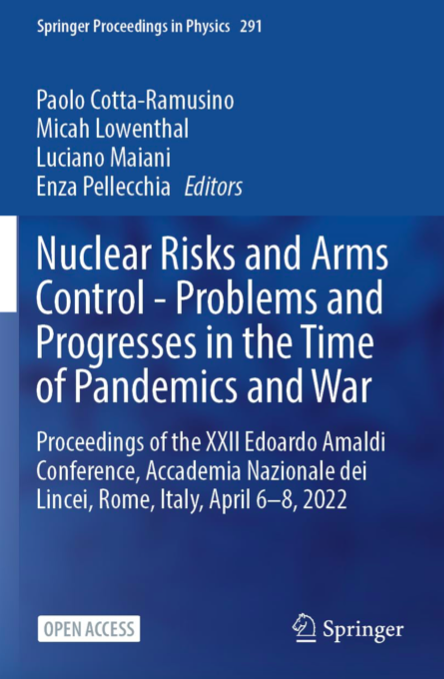
G. Tamburrini. Nuclear Weapons and the Militarization of AI. In P. Cotta-Ramusino et al (eds), Nuclear Risks and Arms Control – Problems and Progresses in the Time of Pandemics and War, Proceedings of the XXII Edoardo Amaldi Conference, Accademia Nazionale dei Lincei, Rome, Italy, April 6–8, 2022. Springer Proceedings in Physics 291 (Open Access), pp. 147-158. 2022. ISBN: 978-3-031-29707-6, DOI: 10.1007/978-3-031-29708-3.
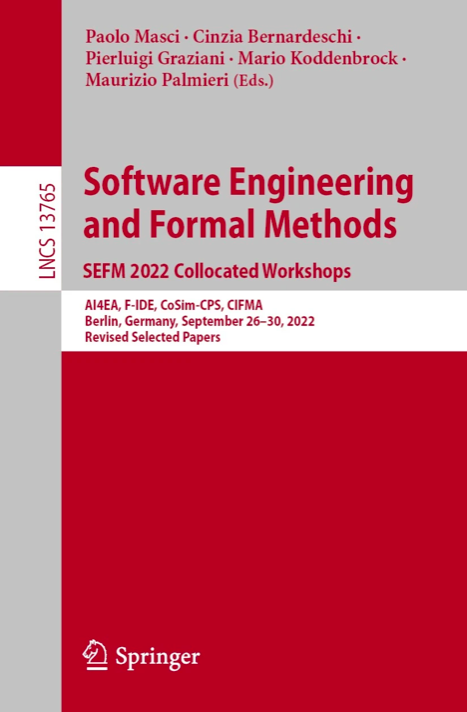
Marco Larotonda and Giuseppe Primiero. A Depth-Bounded Semantics for Becoming Informed. In: P. Masci, C. Bernardeschi, P. Graziani, M. Koddenbrock and M. Palmieri (eds.) Software Engineering and Formal Methods. SEFM 2022 Collocated Workshops. SEFM 2022. Lecture Notes in Computer Science, vol 13765. Springer, 2023.
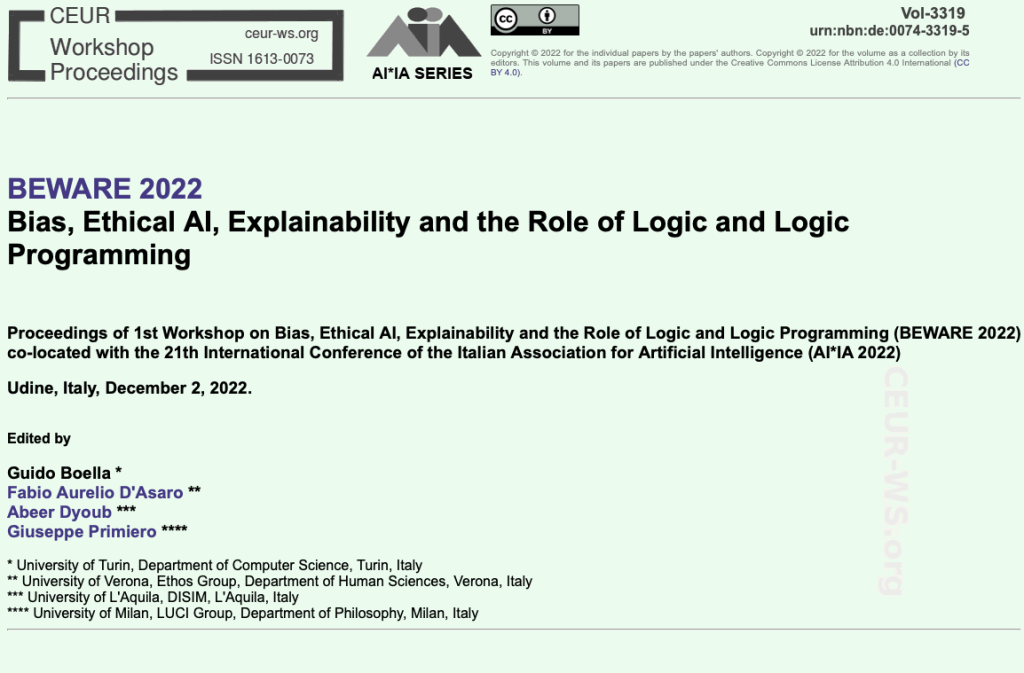
Guido Boella, Fabio Aurelio D’Asaro, Abeer Dyoub & Giuseppe Primiero. BEWARE 2022: Bias, Ethical AI, Explainability and the Role of Logic and Logic Programming. Proceedings of 1st Workshop on Bias, Ethical AI, Explainability and the Role of Logic and Logic Programming (BEWARE 2022) co-located with the 21th International Conference of the Italian Association for Artificial Intelligence (AI*IA 2022). Udine, Italy, December 2, 2022.
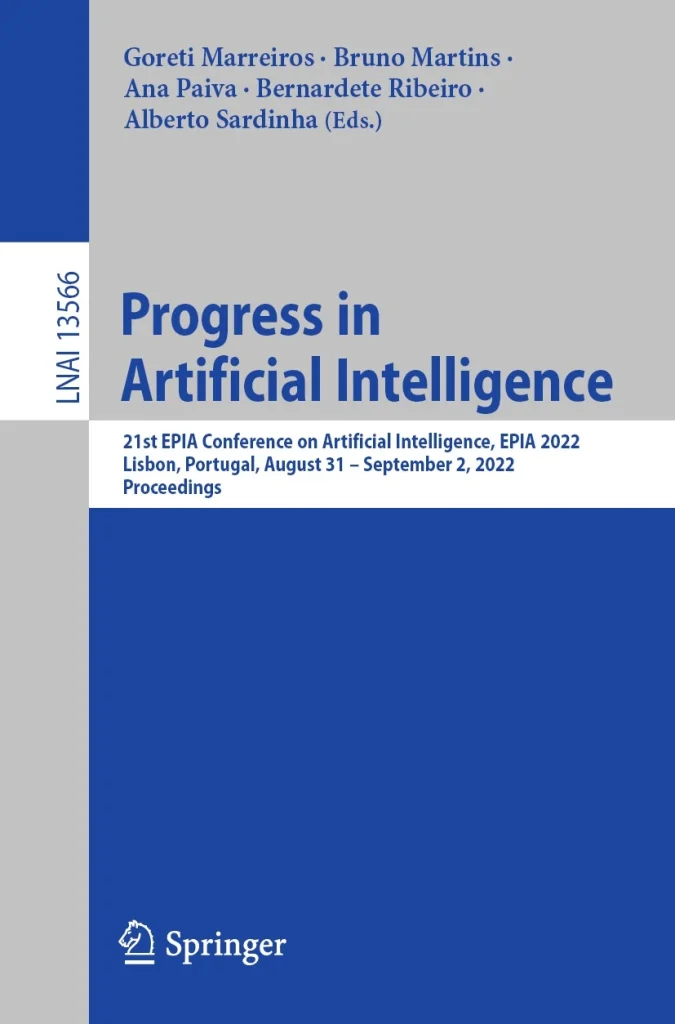
Roberto Confalonieri, Pietro Galliani, Oliver Kutz, Daniele Porello, Guendalina Righetti, and Nicolas Troquard. Almost certain termination for ALC weakening. In Goreti Marreiros, Bruno Martins, Ana Paiva, Bernardete Ribeiro, and Alberto Sardinha (eds.), Progress in Artificial Intelligence – 21st EPIA Conference on Artificial Intelligence, EPIA 2022, Lisbon, Portugal, August 31 – September 2, 2022, Proceedings, volume 13566 of Lecture Notes in Computer Science, pp. 663-675, 2022. (Best paper award EPIA 2022)
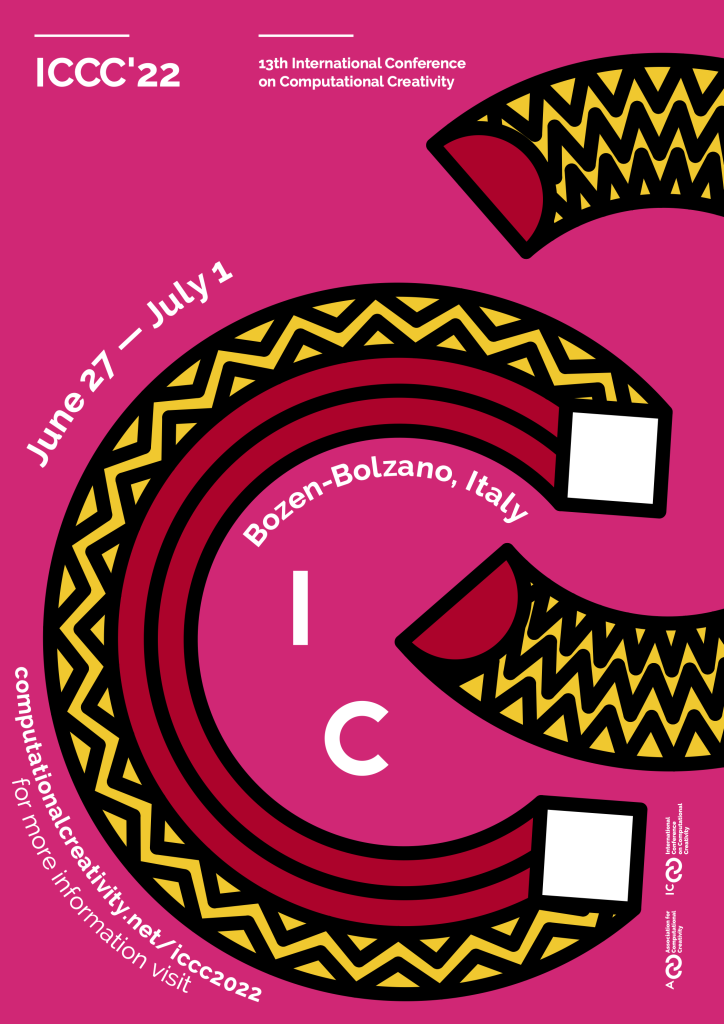
Guendalina Righetti, Oliver Kutz, Daniele Porello, and Nicolas Troquard. A game of essence and serendipity: Superb owls vs. cooking-woodpeckers. In Maria M. Hedblom, Anna Aurora Kantosalo, Roberto Confalonieri, Oliver Kutz, and Tony Veale (eds.), Proceedings of the 13th International Conference on Computational Creativity, Bozen-Bolzano, Italy, June 27 – July 1, 2022, pp. 300–309, 2022.
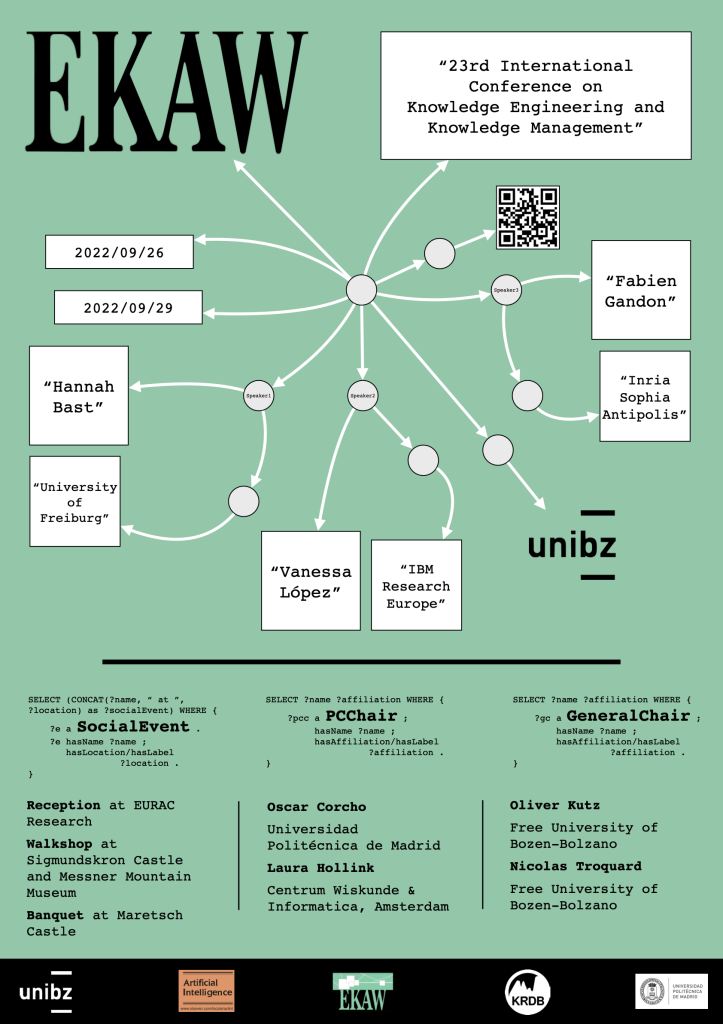
Guendalina Righetti, Daniele Porello, and Roberto Confalonieri. Evaluating the interpretability of threshold operators. In Oscar Corcho, Laura Hollink, Oliver Kutz, Nicolas Troquard, and Fajar J. Ekaputra (eds.), Knowledge Engineering and Knowledge Management – 23rd International Conference, EKAW 2022, Bolzano, Italy, September 26-29, 2022, Proceedings, volume 13514 of Lecture Notes in Computer Science, pp. 136–151, 2022.
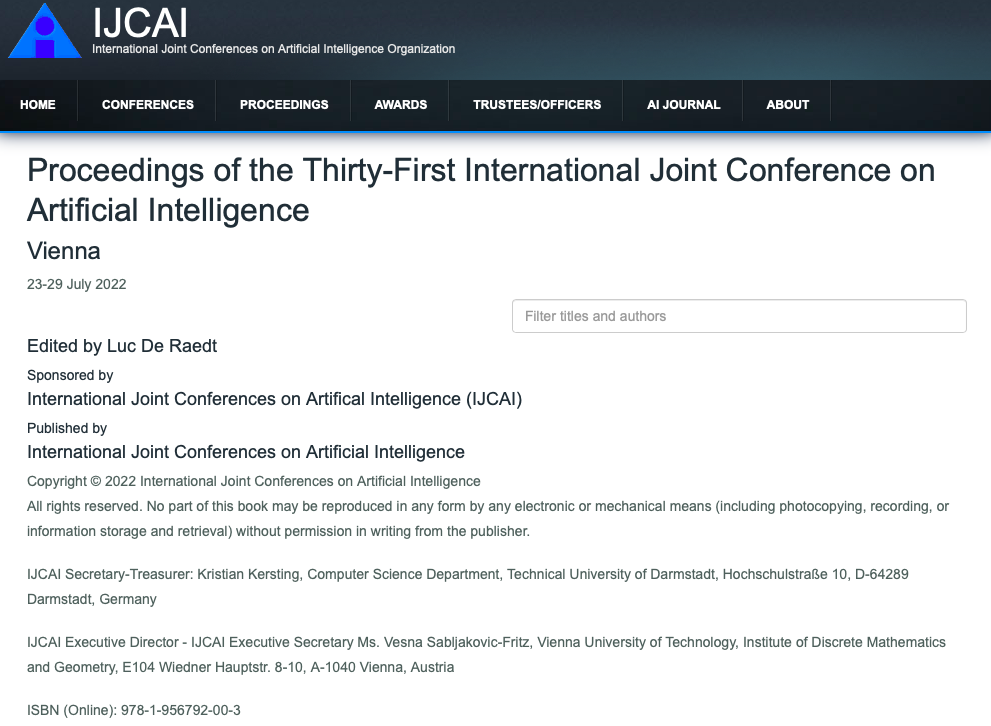
Guendalina Righetti, Daniele Porello, Nicolas Troquard, Oliver Kutz,Maria M. Hedblom, and Pietro Galliani. Asymmetric hybrids: Dialogues for computational concept combination (extended abstract). In Luc De Raedt, editor, Proceedings of the Thirty-First International Joint Conference on Artificial Intelligence, IJCAI 2022, Vienna, Austria, 23-29 July 2022, pp. 5329-5333, 2022.
(Sister Conferences Best Papers Track)
Book Chapters
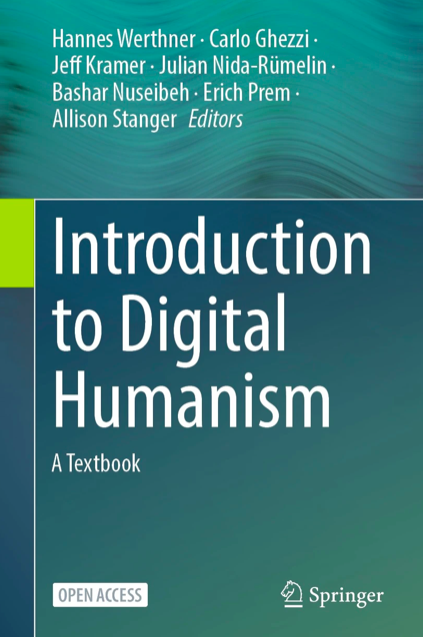
G. Tamburrini. Artificial Intelligence and Large-Scale Threats to Humanity. In Hannes Werthner, Carlo Ghezzi, Jeff Kramer, Julian Nida-Rümelin, Bashar Nuseibeh, Erich Prem, Allison Stanger (eds.), Introduction to Digital Humanism. A textbook. Springer Cham, pp. 241-254, 2024.
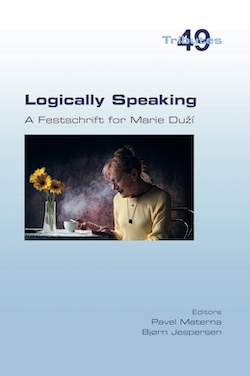
Giuseppe Primiero. Hyperintensions for Probabilistic Computations. In Pavel Materna and Bjørn Jespersen (eds.), Logically Speaking: A Festschrift for Marie Duží. Tributes vol. 49, College Publications, pp. 311-328, 2022.
Dissemination
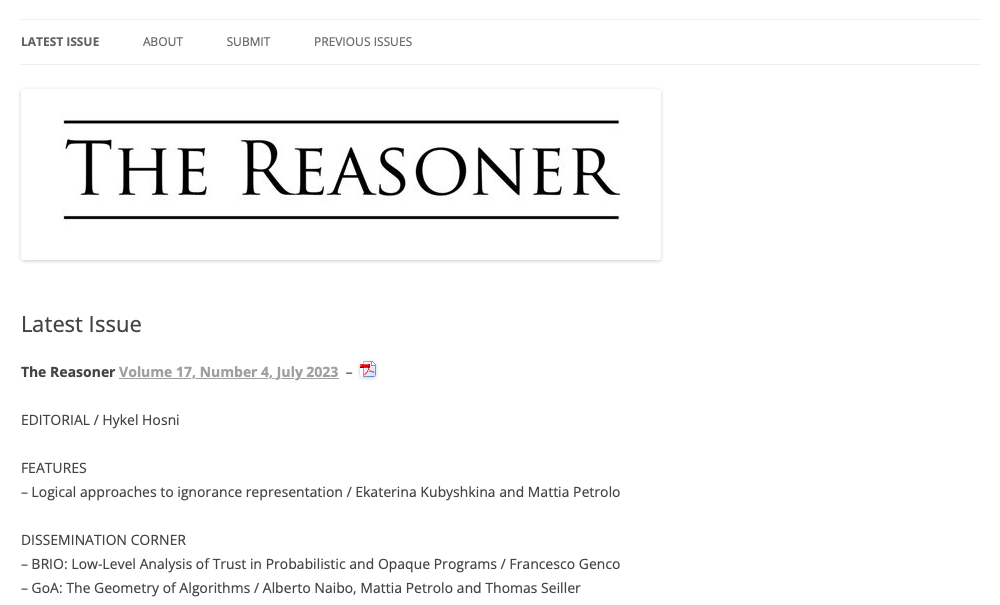
Giuseppe Primiero. BRIO Goes Into the Real World. The Reasoner, vol. 18, n. 4, July 2024.

Giacomo Zanotti. BRIO: Ascribing trustworthiness to AI systems. The Reasoner, vol. 18, n. 2, March 2024.

Fabio Aurelio D’Asaro. BRIO. The Reasoner, vol. 18, n. 1, January 2024.

Greta Coraglia. BRIO: From topology to a logic of uncertainty. The Reasoner, vol. 17, n. 6, November 2023.

Emanuele Bottazzi. Il baratro del successo ChatGPT e il compimento come singolarità. La Tigre di Carta, n. 30, October 2023.

Francesco A. Genco. Low-level analysis of trust in probabilistic and opaque programs. The Reasoner, vol. 17, n. 4, July 2023.

Roberto Prevete & Andrea Apicella. BRIO. The Reasoner, vol. 17, n. 2, March 2023.

Mattia Petrolo & Giacomo Zanotti. Bias, Ethical AI, Explainability and the Role of Logic and Logic Programming. The Reasoner, vol. 17, n. 1, January 2023.

Alberto Termine. BRIO. The Reasoner, vol. 16, n. 8, November 2022.

Fabio Aurelio D’Asaro. BRIO. The Reasoner, vol. 16, n. 6, September 2022.

Roberta Ferrario & Daniele Porello. BRIO. The Reasoner, vol. 16, n. 5, July–August 2022.

Daniele Chiffi & Viola Schiaffonati. BRIO. The Reasoner, vol. 16, n. 3, May–June 2022.

Giuseppe Primiero. BRIO. The Reasoner, vol. 16, n. 1, January 2022.
Preprints
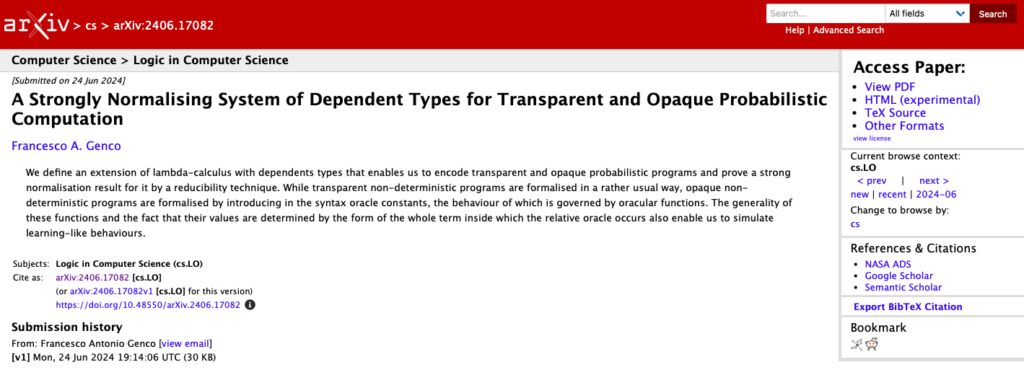
F.A. Genco. A strongly normalising system of dependent types for transparent and opaque probabilistic computation. Technical report.
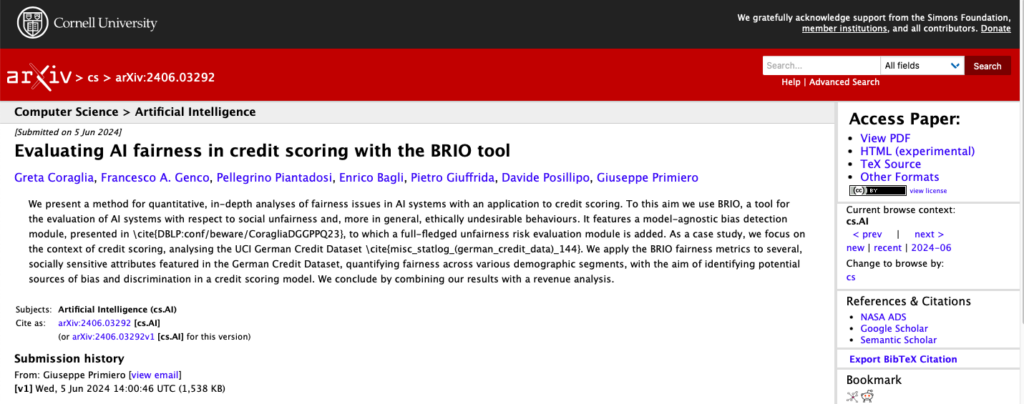
G. Coraglia, F.A. Genco, P. Piantadosi, E. Bagli, P. Giuffrida, D. Posillipo, G. Primiero. Evaluating AI fairness in credit scoring with the BRIO tool. Submitted for publication.
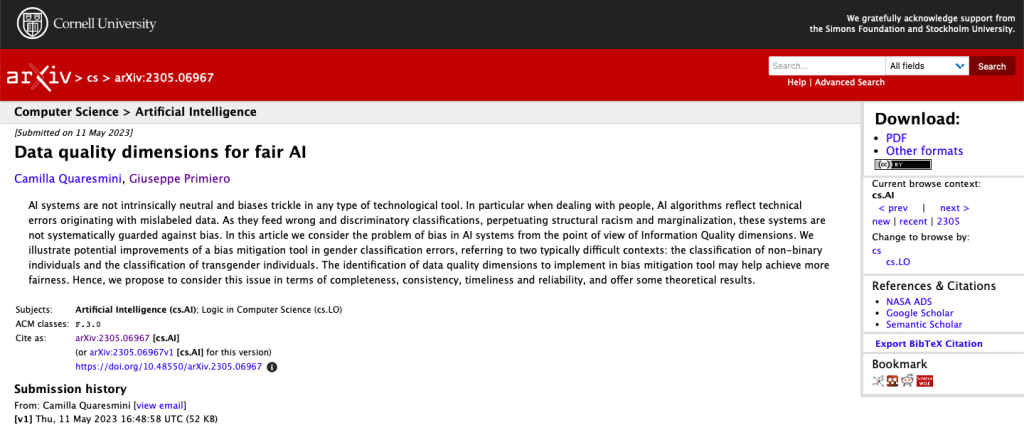
Giuseppe Primiero & Camilla Quaresmini. Data quality dimensions for fair AI. Submitted for publication.
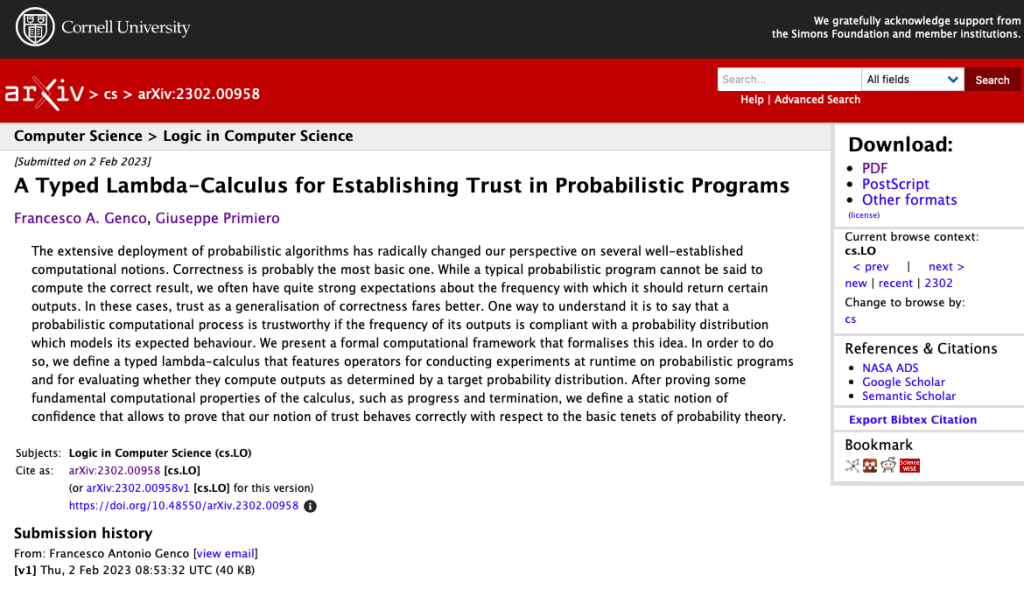
Francesco A. Genco & Giuseppe Primiero. A Typed Lambda-Calculus for Establishing Trust in Probabilistic Programs. Submitted for Publication.
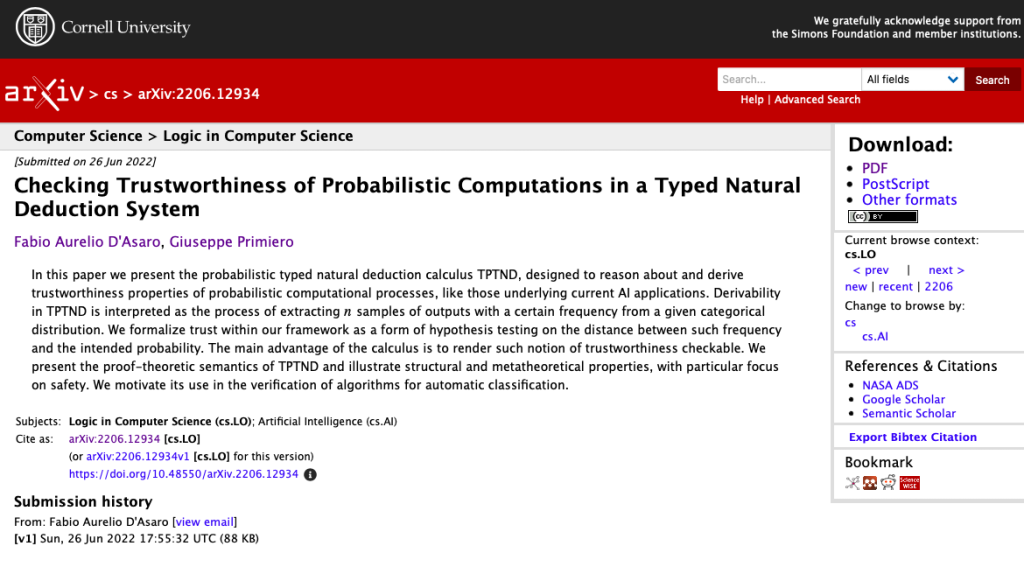
Fabio Aurelio D’Asaro, Francesco A. Genco & Giuseppe Primiero. Checking Trustworthiness of Probabilistic Computations in a Typed Natural Deduction System. Submitted for publication.